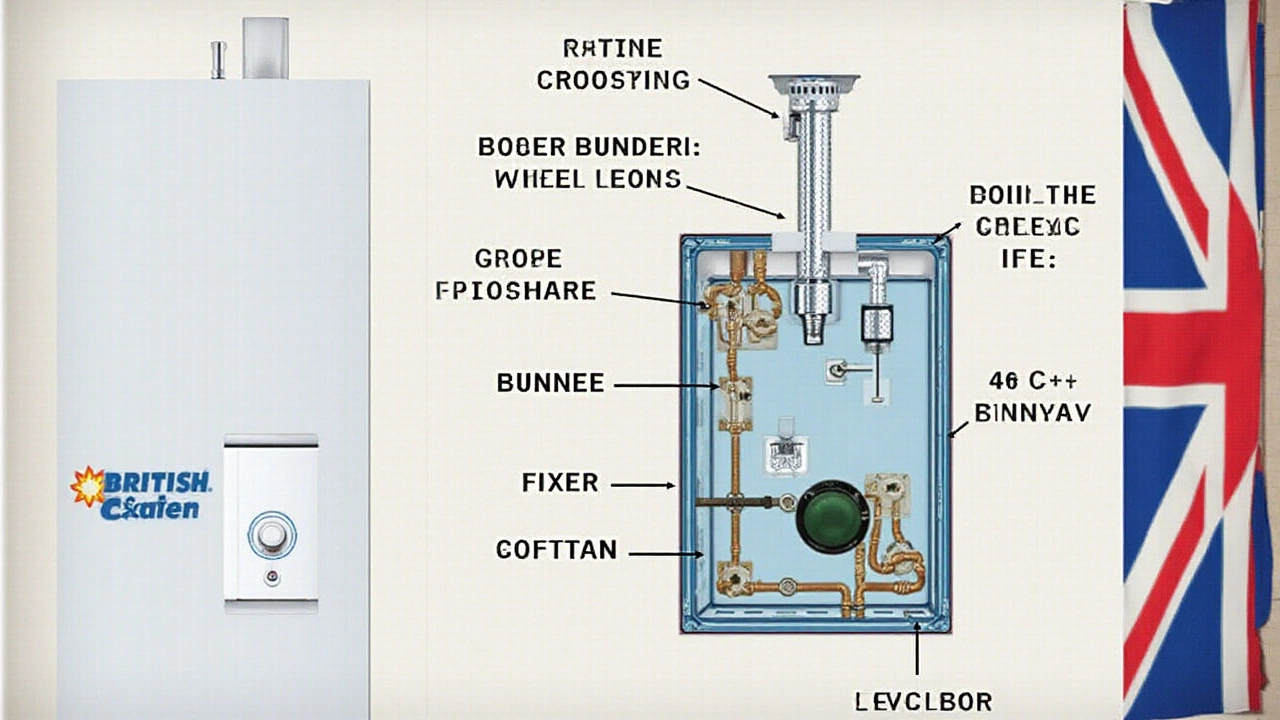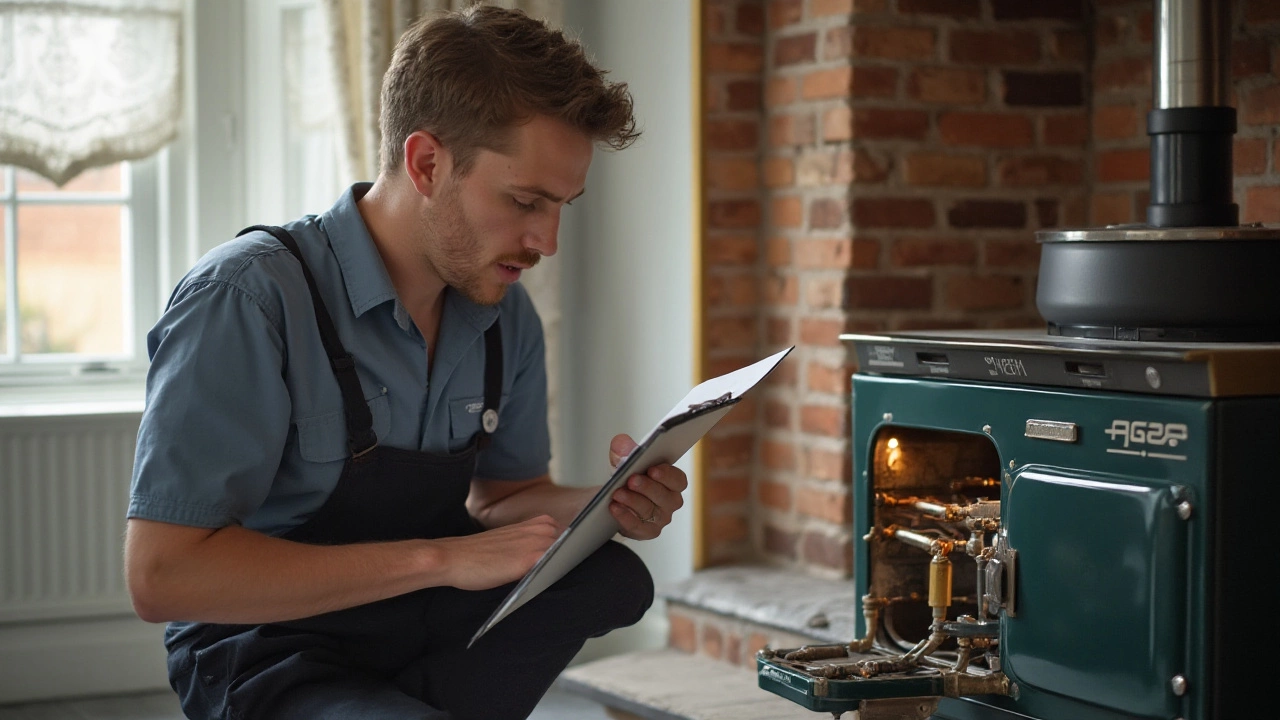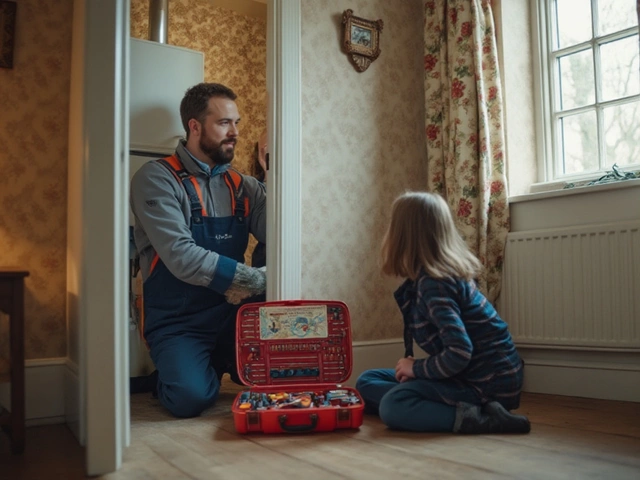When it comes to home maintenance, ensuring your boiler is in tip-top shape is vital for comfort and safety during those chilly winters. Regular boiler service not only helps your heating system run smoothly but can also save you from unexpected breakdowns. But what exactly happens during a boiler service?
An annual visit from a qualified engineer involves a thorough inspection and testing of your heating system. From checking the heat exchanger and valves to testing the safety devices, each step is designed to spot potential issues before they turn into costly problems.
Knowing what to expect can help you appreciate the value of this yearly ritual. Plus, understanding the service process might spark some inspiration for other energy-efficient upgrades to warm your home and heart all winter long.
- The Importance of Boiler Servicing
- Key Components Checked During Service
- Signs Your Boiler Needs Immediate Attention
- Tips for Maintaining Boiler Efficiency
The Importance of Boiler Servicing
As the cold months creep in, there's nothing quite like the reassuring hum of a well-functioning boiler. That's why regularly scheduled boiler service is not just a good idea; it’s essential. When a boiler runs efficiently, it turns your house into a warm sanctuary, but without proper maintenance, this vital system can become a homeowner's nightmare. The importance of keeping on top of boiler maintenance cannot be overstated. Statistics show that regular servicing can extend the lifespan of your boiler by several years, saving you the considerable cost and hassle of premature replacement. Moreover, ensuring your boiler is serviced annually helps it operate at maximum energy efficiency, which is good news for both your wallet and the planet.
Safety Concerns
A boiler that has missed regular checks can pose serious safety risks. Carbon monoxide, an odourless and colourless gas, can seep out of a malfunctioning boiler and silently cause harm to your household. The silent nature of this hazard makes it potentially lethal, which is why a competent engineer will always check for any leaks during a service."Only through proper and consistent servicing can one ensure the safety and extended functionality of their heating systems," experts from the Energy Saving Trust suggest.This is especially critical in families with vulnerable individuals such as children or elderly members, where precaution must be taken seriously.
Cost Efficiency
Regular boiler service not only addresses minor issues before they balloon into costly repairs but also keeps your heating bills in check. An unserviced boiler can work less effectively, leading to higher fuel consumption to maintain the desired temperature. This inefficiency translates directly into rising heating costs that burden many households unnecessarily. Breakdowns also tend to happen at the most inconvenient times, like during a cold snap, leaving you frantically searching for emergency repair services. With regular maintenance, you save money not only on energy costs but on emergency services as well. Consider it an investment—a little service cost now saves on potential big spends later.Reliable Comfort
Lastly, we should not underestimate the comfort that a reliable heating system provides. Walking into a warm home on a frosty winter evening feels like a small everyday luxury that adds significantly to quality of life. When everything works as it should, you have one less worry on your plate, allowing you to focus on the joy of the season instead of scrambling under a pile of blankets. Regular servicing ensures that your heating will not let you down when you need it most, giving you consistent performance throughout the winter months.
Key Components Checked During Service
Delving into a boiler service, you'll find that each visit involves a meticulous check of various components vital for the system's optimal performance. One of the primary elements inspected is the heat exchanger. This key part is responsible for transferring heat from gas to water, and over time, it might become clogged with soot or debris. An engineer will clean and assess it to ward off any loss of efficiency that could turn your boiler into an energy guzzler.
The burner is another critical area of focus during a service. It ensures the fuel combusts proficiently for effective heating. A faulty burner might cause strange noises or uneven heat distribution in your home, which is why technicians make sure it’s clean and functioning correctly. In some cases, issues with the burner can lead to increased energy bills as the boiler struggles to maintain desired temperatures, emphasizing why regular checks are essential.
Carlos Espinosa, a renowned engineer from the Heating Maintenance Association, states, "Routine servicing is akin to an annual health check for your boiler. It not only prolongs its life but ensures it operates safely and efficiently."
Equally important is the examination of safety devices like pressure relief valves and thermostats. They are vital for preventing disastrous malfunctions by regulating water pressure and temperature. Should these components fail, the risk of leaks or even explosions increases markedly. Engineers often test these parts extensively during a service to ensure they react properly under various conditions, keeping your home safe.
The controls, too, cannot be overlooked, as they manage how your system runs. From programmer settings to thermostat readings, a boiler’s electronic components must be calibrated correctly to guarantee seamless operation. Engineers meticulously verify each setting, potentially updating outdated software to enhance interaction between you and your heating system.
Moreover, details such as the flue and external vents are evaluated to ensure no blockages could impair ventilation. This aspect is crucial for safe operation, as obstructed flues might lead to the dangerous buildup of carbon monoxide. Eyeballing these components during the service helps to mitigate risks and can dramatically improve the overall safety profile of your system.

Signs Your Boiler Needs Immediate Attention
Your boiler is a silent workhorse, quietly ensuring your home stays warm and comfortable. However, like all machines, it needs care and attention. Sometimes, machines have ways of telling us they need help before outright breaking down, and your boiler is no different. One of the most obvious signals that your boiler needs immediate attention is if it starts making unusual noises. These noises can vary from banging, whistling, or gurgling sounds. Often these noises indicate trapped air in the system or low water pressure, but they can also suggest something more serious, like a malfunctioning heat exchanger or pump.
An unexpected spike in your energy bills could also signal a problem. If you notice a sudden increase without a corresponding rise in usage, it might be because your boiler is working inefficiently. Older boilers can lose efficiency as parts wear out, leading to higher fuel consumption. And while normal wear and tear is expected, significant efficiency drops should be investigated without delay.
The presence of leaks around the boiler unit itself is a clear indication that something has gone awry. Leaks can lead to water damage in your home and indicate issues such as a faulty pressure relief valve, corrosion in the pipes, or compromised seals. Addressing leaks quickly can prevent substantial damage and reduce the risk of costly repairs or even replacement of the entire heating system.
If you experience inconsistent heating or hot water, it’s another strong sign that your heating system needs professional attention. This inconsistency could result from several issues, including thermostat problems, air pockets, or issues with the boiler's fuel supply. “Boilers are one of the most essential components of a home heating system, providing both warmth and hot water,” says Jane Smith, an expert from the UK Home Heating Association.
"If any disruptions occur, it can significantly impact the quality of life, so it’s crucial to act swiftly."
Lastly, carbon monoxide leaks are the most serious and dangerous problem associated with boilers. Symptoms of carbon monoxide poisoning include headaches, dizziness, and fatigue, often misidentified as the common cold or flu. Installing a carbon monoxide detector nearby can serve as a critical safety measure, detecting early traces before they become dangerous. Remember, if a carbon monoxide detector goes off, you should leave the house immediately and call emergency services.
These signs are not exhaustive, but they are some of the more common indications that your boiler may need immediate professional evaluation. Regular inspection by a certified engineer is essential, not only to maintain efficiency but to ensure the safety of your household. Keeping an eye out for these warning signs can help catch problems early and keep your home safe and warm.

Tips for Maintaining Boiler Efficiency
Keeping your boiler efficient not only helps in reducing energy bills but also ensures a longer life for your heating system. Start by setting a regular maintenance schedule. Just like a car, your boiler needs regular check-ups to perform optimally. Scheduling a service with a qualified professional at least once a year can catch minor issues early, like a small leak or a faulty seal, before they become major headaches. This isn't just about avoiding breakdowns; a well-maintained boiler uses less fuel, which means lower energy costs and a reduced carbon footprint.
Another effective tip is ensuring you bleed your radiators regularly. Air can get trapped in the plumbing system, causing cold spots and making the boiler work harder than necessary. By bleeding the radiators, you release that trapped air, allowing hot water to circulate freely. It’s a straightforward task you can usually do yourself with a radiator key, but if you're unsure, don’t hesitate to call a professional. Moreover, consider insulating your pipes, especially those exposed to colder areas. Simple pipe insulation can prevent heat loss and help your heating system remain efficient.
For those with older boilers, upgrading to a modern, energy-efficient model when financially feasible is a wise move. Modern boilers are more efficient and designed to adhere to stricter environmental standards. For instance, condensing boilers can convert up to 90% of the fuel into useful heat compared to older models that manage around 70%. According to the Energy Saving Trust, replacing an old non-condensing boiler with a new condensing one can save a homeowner several hundred dollars annually on heating bills. This investment pays off over time in lower energy bills and increased efficiency.
According to Phil Mason of the UK’s Heating and Hotwater Industry Council, "Running an old inefficient boiler can cost you upwards of 30% more on your energy bills than it needs to. Switching to more energy-efficient models can considerably cut down your costs and carbon footprint."
If your boiler has a thermostat, be sure to use it wisely. Setting room temperatures flexibly can prevent the system from working harder than necessary. Consider installing a programmable thermostat if you don’t already have one. These devices can be set to reduce heating during times when you're asleep or away from home, without having to manually adjust the dial each time. It’s a small step that makes a big difference in saving energy.
- Regular maintenance schedule
- Bleeding radiators to prevent cold spots
- Insulating exposed pipes
- Considering boiler upgrade
- Smart use of thermostat
By following these tips, not only will you ensure that your heating system serves you efficiently, but you'll also contribute to a greener planet by reducing energy waste. With these practices, your home will stay cozy and warm while keeping your energy bills in check.







